
by Mike Errico | Aug 10, 2015 | Text Journalism
While streaming services battle it out for the heart and mind of Taylor Swift, there’s a place where creators can post all their music, and whatever else they’ve made, quickly, directly and on their own terms. It’s Bandcamp. You’ve probably heard of it. It’s cheaper than iTunes (if you choose to set the prices that way); the downloads import into Spotify playlists; and you can get high-res versions just like Tidal. But most important, if you download something, Bandcamp lets creators know who you are so you can stay in touch, just like…well, none of them. I suppose you can argue that downloading is “antiquated,” or something, but having a connection between buyer and seller is not. Those big streaming services call that connection “Big Data,” and having that connection is what values them in the billions. That’s the very “not antiquated” element to a Bandcamp purchase. You know that’s why none of the other services help us stay in touch, right? Basically, they’re jealous. Yes. They’re insecure that if we know each other we’ll get together without them. And you know? We might! That’s the whole point of “discovery,” isn’t it? To let us discover a) what we like and b) who likes us back? Can you imagine if Tinder had been set up so you could swipe right on someone, but they’d never find out…ever? That’s what it’s like to be an artist on a streaming service. Could streaming services change that? Well, considering Taylor Swift sneezed and Apple changed its entire pricing structure, I’d say yes. Until then, consider this: Whichever streaming service doesn’t facilitate the...
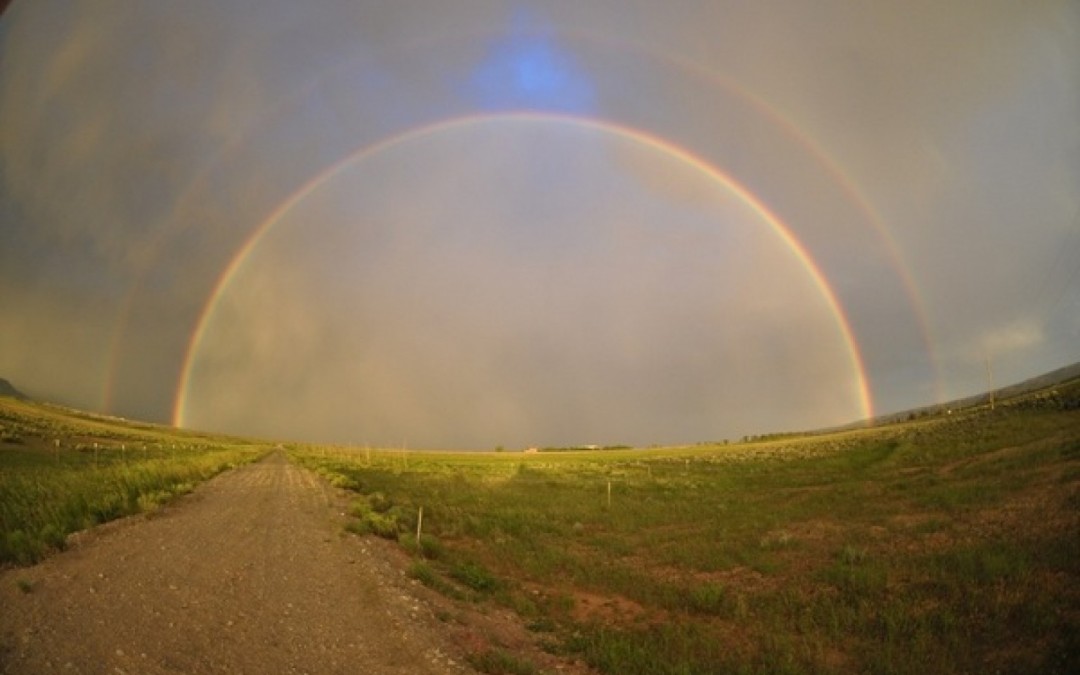
by Mike Errico | Jun 24, 2015 | Stories, Text Journalism, The Solo Show
Recently, I wrote a piece on Cuepoint about how :30 second songs might be just around the corner because streaming services pay artists after :30 seconds. Well. About a week passed. There’s a new site called Eternify that claims it gets artists paid by streaming only the :30 needed in order to count as a “stream.” The future, kids. I don’t get it either. So let’s have some fun. The link I’m not-so-strangely interested in: http://eternify.it/#Mike-Errico Technically, all you do is click on a piece of mine and it will stream :30 clips. I’ve never done something so easy in the entire Internet. Here’s the deal: You work with me, I’ll make stuff for you. If you are leaving work/stepping away from your computer for the evening, or if you don’t listen to music while you work, you can click on it, then simply hit mute and go about your day/evening. If that’s too intrusive, you can click on it before you step away from your computer for the day, and just let it run. You can, it appears, even open multiple tabs and let them run simultaneously. (I tried it. Seems like it works.) Would you rather get another artist paid, too? Not a problem — just open a tab and stream that artist, too. It also gives a running total, so you can keep track of your contribution by taking a screen grab. Like so: YOUR EXCELLENT QUESTIONS PROBABLY ARE: “Mike: What will you do with the money, if it arrives?” I’ll make more of the stuff you (hopefully) already like. Same as if you subscribed to a Kickstarter or Patreon campaign, except...
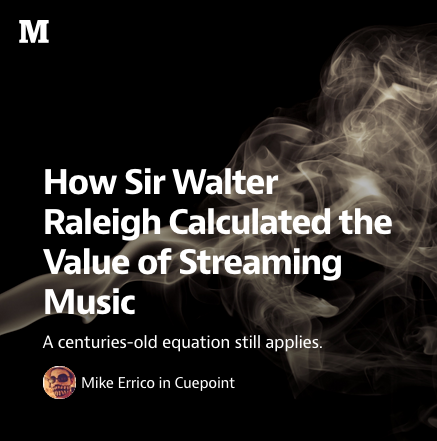
by Mike Errico | Jun 9, 2015 | Text Journalism
A centuries-old bet with Queen Elizabeth shows that you just need to use the right scale. So what’s the value of music? Let’s take one possibility off the table: it’s not “zero,” because, as we know, there’s demand. I mean, the value of air is not zero, plentiful as it still is — it’s legally protected, and if you still insist that it has no inherent value, well, just have it taken from you. See? Value. Are there similar analogies that can be instructive within the streaming music space? Well, yes. Check out “How Sir Walter Raleigh Calculated the Value of Streaming Music,” my latest piece on...
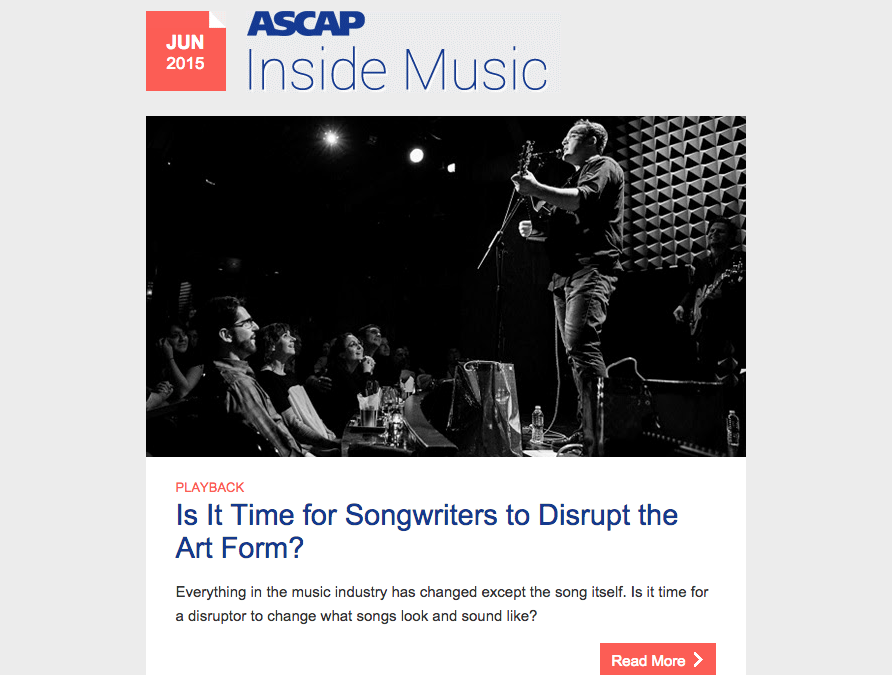
by Mike Errico | Jun 9, 2015 | Teaching, Text Journalism
Honored to have ASCAP pick up my piece on tech’s effect on songwriting. Question: In the streaming economy, do songs have a financial incentive to change what they look and sound like? For instance, Spotify, the clear leader in the streaming space, pays after 30 seconds, so an honest question is: Why write beyond that? And… Are you, in fact, screwing yourself six times over for writing a three-minute song (:30 x 6 = 3:00 song)? A “song disruptor” would just cut everything back to :32 or so, and see huge positive results in his/her own streaming royalty statements. Labels would love it for the same reason (more money). Thinking ahead: If a critical mass were to adopt song forms of these lengths, would Spotify payouts to creators suddenly rise sixfold? That would probably crush the business model, wouldn’t it? I mean, it can’t make a profit as is, and songs are clocking in at around three minutes. Are streaming services just skating by on all that non-monetized listening time? Spotify also pays higher rates at around five minutes — because of course it does. It makes the company money to not have to pay out for four entire minutes of a song. Taking this into account, what is this thing – songwriting – going to look and sound like in the not-too-distant future? Read more on ASCAP’s web site. Original post on...
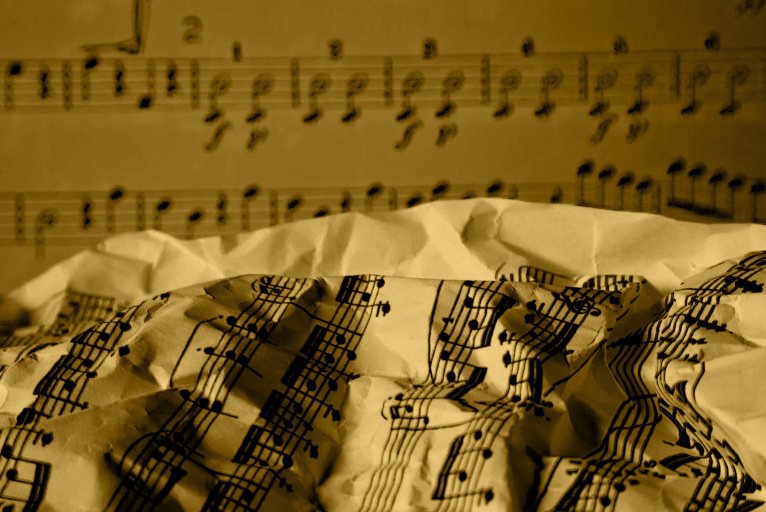
by Mike Errico | Jun 3, 2015 | Text Journalism
With all that’s going on in the streaming space, what is the future of this thing — songwriting — we’re all talking about? Redefining an art form isn’t new, but neither is the concept of streaming, which was happening with elevator music in the 1930s, and was theorized decades earlier. But now that streaming has taken off, will song form react? Will it just be three choruses and nothing else? Is it the return of the ABAB song form, where the sections have a balanced weight and there are no sections dedicated to “setting up” another section? Pre-choruses?! Who’s got time for a “pre”-anything? And bridges? Bridges to what, exactly? Who has time for a bridge? You’re either there or you’re not there. Why get stuck in transit from one section to another? So, if “Gangnam Style” had been 1:10 instead of 4:13, what might have happened? Would it not have been as “good?” I don’t know, but: How much of “Gangnam Style” can you sing back right now? It’s probably not 4:13 worth. Psy left money on the table. At billions of views, that’s a lot of money. Read more at...
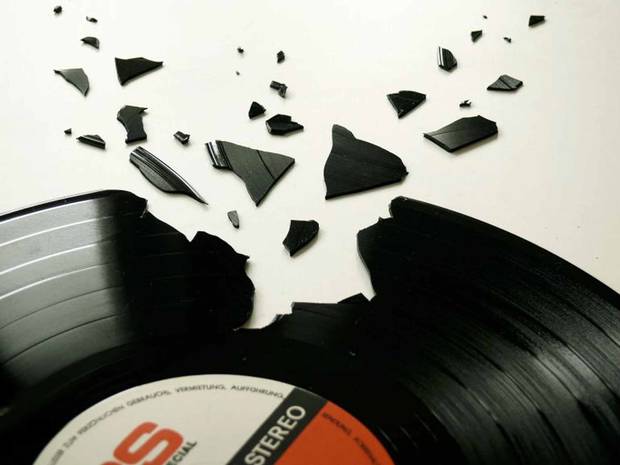
by Mike Errico | Jun 3, 2015 | Text Journalism
London’s The Independent is running my article on technology and songwriting on the front page of its arts section. They added a lovely infographic and everything. Check it out. The future of songwriting: How streaming is changing everything we know about making music Here’s the online...







